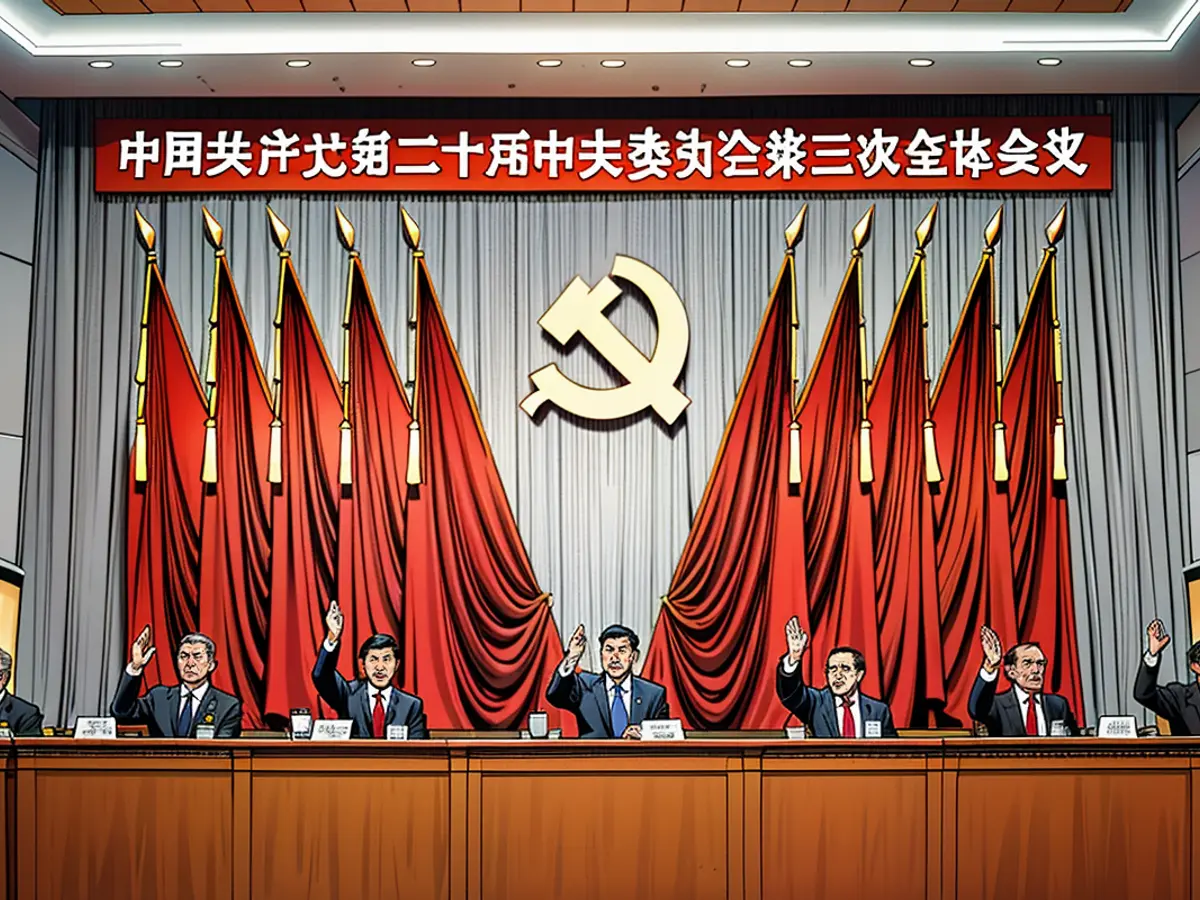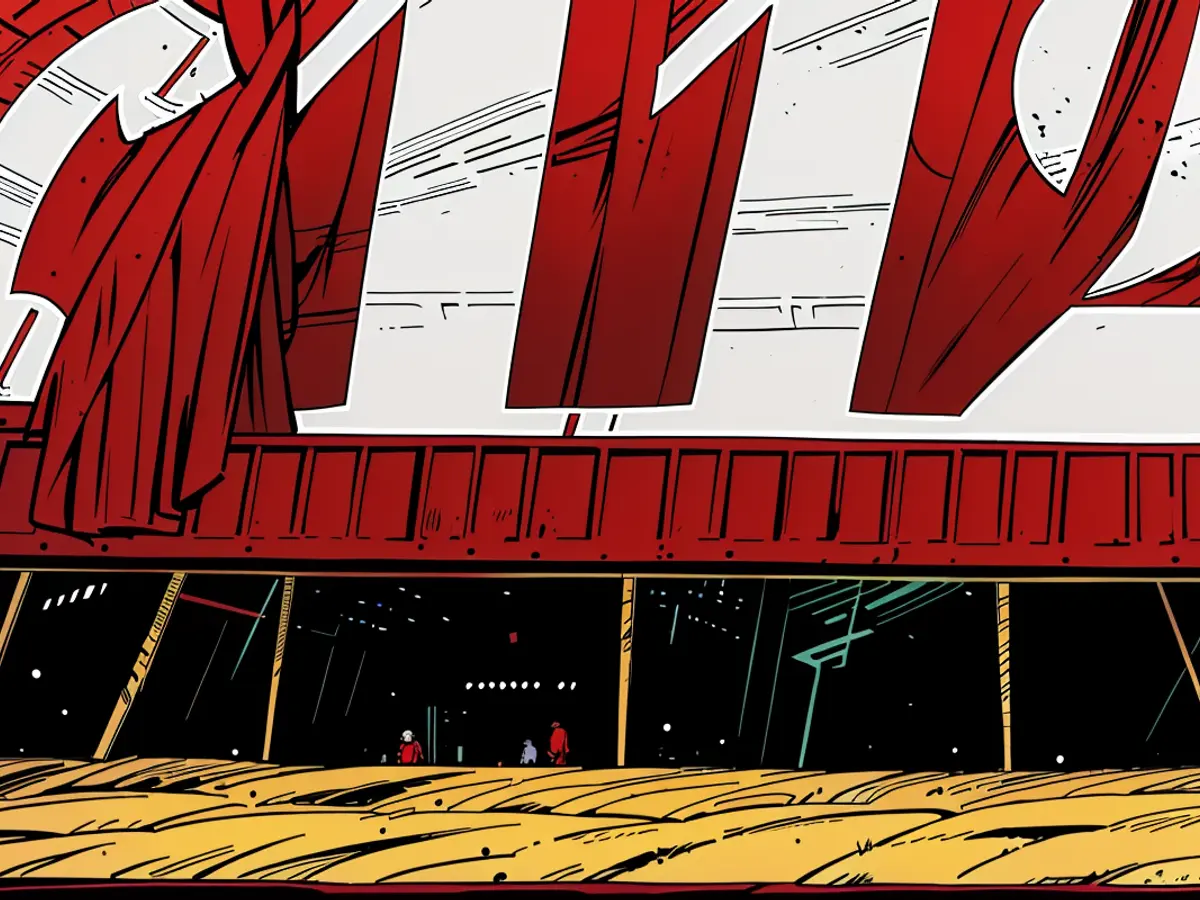China economy: Key meeting offers few clues on how to tackle worsening downturn
In a behind-closed doors meeting known as the third plenum, more than 360 members of the party’s Central Committee — including the most senior political and military leaders and heads of state-owned enterprises — held talks from Monday to Thursday at a hotel in Beijing.
According to a communique released Thursday, discussions at the plenum — traditionally held every five years — centered on how to deepen reforms in a wide range of areas and advance “Chinese-style modernization,” a broad ideal for the country’s development backed by Chinese leader Xi Jinping.
Xi, who hosted the meeting, has laid out a longterm vision to build a more equitable, innovative, and greener economy — under the tight control of the party — by 2035.
But while the communique outlined broad goals such asboosting technology self-sufficiency, improving social welfare and deepening reforms of the fiscal, taxation and financial systems, global investors were left disappointed by a lack of detail on how China would address the most pressing issues plaguing its economy — from sluggish consumer spending and a persistent property slump to a mounting debt crisis facing municipalities around the country.
“There are few signs that the just concluded third plenum marks a major change in the direction of policymaking,” said Julian Evans-Pritchard, head of China economics, at Capital Economics on Friday.
While it offered few clues on how to tackle economic difficulties, the meeting did provide further insight into a shake-up of high-level personnel over the past year.
Qin Gang, China’s former foreign minister who was ousted after only months in the job, was removed from the Central Committee after a “resignation,” but retained his Communist Party membership.
By contrast, the meeting confirmed the expulsion from the party of former Defense Minister Li Shangfu, who was sacked last year and investigated for corruption, as well as two People’s Liberation Army Rocket Force figures Li Yuchao and Sun Jinming.
Their removal – part of a sweeping purge within the top ranks of the military – came after the committee heard a report on their “grave violations.”
‘History of paying lip service’
Shortly after he came to power, Xi promised at the plenum in 2013 to give market forces a “decisive role” to play in the economy. But in the years since, his government has prioritized state-owned enterprises, implemented stricter regulations and overseen a sweeping crackdown on private businesses and wealthy individuals, as part of a wider campaign to curb the “excesses of capitalism” and fix “income inequality.”
That has rattled the private sector, causing a plunge in investment and contributing to surging unemployment.
Xi’s government has also strengthened its national security apparatus in the past decade, which has scrutinized more areas of the economy and targeted foreign firms in anti-espionage campaigns.
The crackdowns have scared foreign investors and fed geopolitical tensions, leading to accelerated capital outflows.
In the communique, officials pledged to ensure “security,” which means national security concerns could still drive policymaking, said Evans-Pritchard.
They also vowed to give “better play to the role of the market,” while noting that market forces need to be better managed, and retained a previous promise to “unswervingly” develop the state sector.
“The current leadership has a history of paying lip service to the idea of allowing greater market dynamism but failing to follow-through in practice,” Evans-Pritchard said.
If past sessions are a guide, a more detailed report may be released in the following days, but for now, “the plenum communique is light on specifics,” Evans-Pritchard added.
Long-term reform plans
The third plenum names “high quality development” as China’s “top priority” and lays out structural reforms to be completed by 2029.
Beijing has been pushing for self-sufficiency in core technologies as the United States and its allies curb the exports of key products like advanced chips to China. It has also viewed technology innovation as a new growth engine that could help the economy transition from the old model fueled by infrastructure investment and debt expansion.
Policymakers also pledged to “improve people’s livelihoods” at the plenum, which is essentially a continuation of Xi’s “common prosperity” agenda.
While previous leaders in post-Mao China were content to let some get rich first, Xi appears to believe the time has come to share the fruits of China’s development more widely among its population, Evans-Pritchard said.
“This is arguably one of the most promising parts of the reform agenda, since channeling a greater share of income to households would help to advance a much-needed rebalancing toward consumption,” he said.
The leadership also vowed to revamp the fiscal, taxation and financial systems, which signal their concerns about how to address the debt crises faced by local governments.
Debt has piled up at China’s municipal governments, after three years of pandemic controls drained their coffers and the property slump led to a sharp decline in land sales, which they rely on for income. That poses risks to the country’s banking system and economic growth.
Policy advisers and market analysts have been calling on Beijing to reform its fiscal system, allowing local governments to retain more revenues and reduce their dependence on land sales. There have also been calls for an overhaul of consumption tax to broaden local governments’ source of income.
But the communique gave little detail on what measures could be rolled out on those fronts.
“It will be key to watch for further development over the next two to three months,” said Bank of America analysts on Friday.
Short-term economic goals
Besides the long-term structural reform priorities, policymakers also vowed to achieve short-term economic goals, including a 5% GDP growth target for 2024.
That came days after China released disappointing economic data for the second quarter of this year.
GDP grew 4.7% year-on-year in the April-to-June period, marking the weakest growth since the first quarter of last year, according to data from the National Bureau of Statistics on Monday. The figure slowed from 5.3% in the previous three months and missed the 5.1% increase forecast in a Reuters poll of economists.
To achieve the annual goals, “[we] will proactively expand domestic demand” and develop “new-quality productivity forces,” the communique said.
That could mean channeling resources to favored sectors, such as high-tech manufacturing, while gradually curbing the role of sunset industries like property development, according to Evans-Pritchard from Capital Economics.
Analysts say that the coming months could offer more details on how Xi plans to revive the economy.
Emphasizing short-term economic policies is rare in the history of the third plenums, said Larry Hu, chief China economist for Macquarie Group.
As a result, policy stance could turn more expansionary in the second half of this year as policymakers have to defend the annual growth target, he said.
CNN’s Simone McCarthy contributed reporting.
The communique from the third plenum failed to provide specifics on how China will address sluggish consumer spending and other economic challenges, such as the persistent property slump and mounting debt crisis. Global investors expressed disappointment with this lack of detail. (containing 'business' and 'economy')
Xi Jinping's long-term vision includes building a more equitable, innovative, and greener economy under the tight control of the Communist Party by 2035. However, the implementation of this vision and its impact on private businesses and wealthy individuals have caused a plunge in investment and surging unemployment. (containing 'business' and 'economy')








